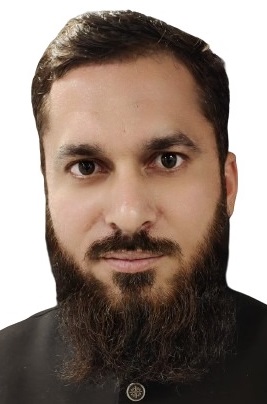Sabir Hussain
In the wake of harrowing attack on police officers guarding a polio team in Bajaur, a profound reflection is necessary on Pakistan’s ongoing battle not only against polio but also against the deep-rooted mistrust and misinformation that endanger those who are striving to eradicate this disease. This recent tragedy, discussed with gravity in the federal cabinet meeting chaired by Caretaker Prime Minister Anwar-ul-Haq Kakar, is not just an isolated incident but a symptom of a larger and more pervasive problem.
As one of the last bastions of polio, Pakistan’s journey towards eradicating this crippling disease has been tumultuous, marred by these recurrent violent attacks. These attacks are not mere acts of violence; they are manifestations of deeply entrenched fears and misconceptions about the polio vaccine, often exploited by extremist elements. They portray a harrowing picture – a battle that is not just medical but also ideological.
The key to overcome this challenge lies not only in enhancing security measures or intensifying vaccination drives, it requires a more nuanced and empathetic approach that addresses the root causes of such hostility. Central to this strategy is the role of community engagement and education. The mistrust in certain communities towards the polio vaccine stems from a lack of understanding, often exacerbated by misinformation. Therefore, it is crucial to involve local leaders, religious scholars, and influencers who can resonate with these communities, dispelling myths and advocating for the health and well-being of children.
Moreover, countering the narrative that polio vaccination is a western ploy, demands a strategic communication approach. This involves not just dispelling the myths but also building a narrative that aligns with local cultural and religious beliefs. The government along with NGOs and community-based organizations, should prioritize creating awareness campaigns that are culturally sensitive and linguistically appropriate.
The security of polio workers is paramount. The sacrifices of those who have lost their lives in this noble cause must not be in vain. While enhanced security is essential, it is equally important to understand that militarizing the campaign is not a sustainable solution. There needs to be a balance between providing security and ensuring that the presence of security personnel does not further isolate the communities.
Furthermore, this issue is a stark reminder of the broader challenges facing Pakistan’s health infrastructure. Strengthening the overall healthcare system, ensuring it reaches the most remote and marginalized areas, can foster a sense of trust in government-led health initiatives. When people witness the tangible benefits of a robust healthcare system, their confidence in programs like polio vaccination is likely to increase.
Legal action against those who attack health workers is necessary, but it is only a part of the solution. There should be a comprehensive strategy to address the ideologies fueling such violence. This requires cooperation between the different segments of society, including religious and community leaders, to denounce and counteract the misinformation that leads to such attacks.
On a global scale, Pakistan’s struggle against polio is not just a national issue; it is a matter of international public health. The world has come tantalizingly close to eradicating polio, and setbacks in Pakistan have implications for global health security. International support, therefore, should not only be in terms of funding and resources but also in sharing expertise and best practices.
To conclude, the fight against polio in Pakistan is a complex issue, involving more than just administering vaccines, it is a fight against misinformation, fear, and deeply rooted mistrust. The government’s resolve, as echoed by the Prime Minister to continue this fight till the complete eradication of polio is commendable but to achieve this goal, Pakistan needs a holistic approach that goes beyond mere vaccination drives, while it requires a concerted effort that combines security, education, community engagement, and a strong and empathetic narrative that resonates with the people. Only then, Pakistan can hope to protect its future generations not just from polio but also from the darkness of ignorance and fear.
The writer is an Islamabad-based journalist and Editor S&T at Sunrise Today. He mainly covers science and technology, climate change, environmental issues, energy crisis, public health, education, Afghan refugees, and international affairs. He can be reached at: lectureonline14@gmail.com. He also shares insights on Twitter @EngSabirHussain.
Related Posts






Comments